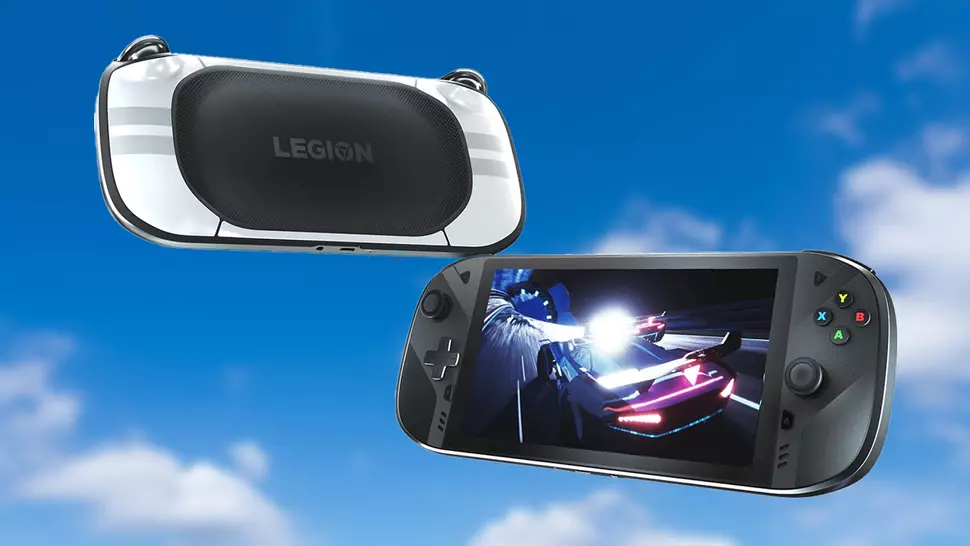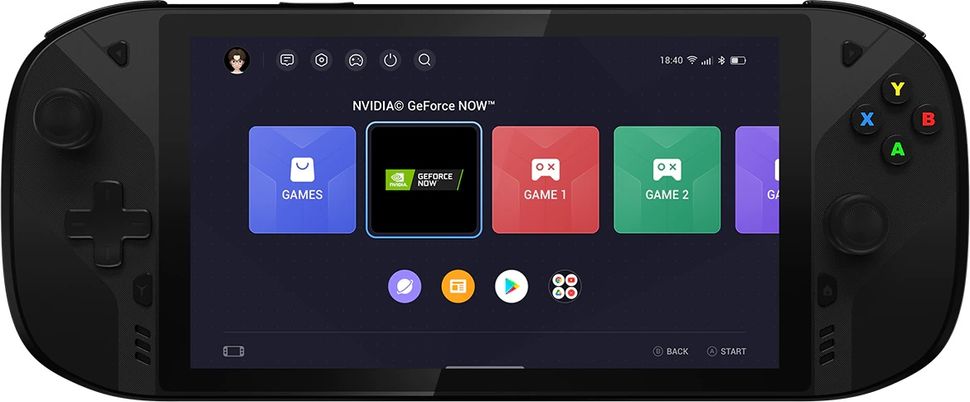Lenovo Preps "Legion Go" Steam Deck Competitor, Wields AMD Phoenix Chip
More choice in the handheld gaming, PC-replacement arena.

Lenovo is reportedly readying its own gaming PC handheld to rival the industry-standard Steam Deck and ASUS' new ROG Ally. According to a report from Windows Central, Lenovo is preparing a new handheld PC gaming device powered by Windows 11. Built out of the same design philosophy as its competitors (pairing a screen with console-like controllers), the Legion Go should bring gamers on the go another Windows 11-powered system that could double as a games console and portable PC platform.
It's expected that the Lenovo Legion Go will follow more or less the same design language as both the Steam Deck and ROG Ally - there isn't much leeway in how handhelds are designed if they're to remain portable, comfortable, and practical. It's currently unknown what a "Lenovo Legion Go" handheld actually means in terms of its design, button arrangement, and other usability concerns. Still, perhaps Lenovo's previous work on the Lenovo Play (which never saw the light of day) can give us an idea of what to expect.

CPU and GPU processing should all be carried out by an AMD Phoenix chip (in the Ryzen 7040 series, whether it's the Z1 or Z1 Extreme). We weren't thoroughly convinced with the Z1 Extreme's performance profile compared to the Steam Deck, for instance, despite the generational differences between both - it remains to be seen whether ASUS will be able to coax more performance/efficiency out of the system, and whether or not Lenovo will come out of the gates swinging with a more optimized software and hardware stack.
One spec where the Legion Go might differentiate itself from both the team Deck and ROG Ally is the screen size - while both in-market alternatives use a 7-inch screen (whether a typical LCD or OLED tech), the Legion Go is rumored to up that diagonal to 8 inches.
That bigger screen should give users a more pleasurable (and slightly less chaotic, depending on HUD elements) experience, although it'll definitely impact battery life. Yes, there will certainly exist some implementation differences among chips, and battery density and other system specs all introduce variables into the autonomy equation; but generally speaking, we'd be surprised if the Lenovo Legion Go provides higher autonomy than the similarly Phoenix-powered ASUS ROG Ally. The same is true against other alternatives in the market, such as Ayaneo's handheld gaming offerings.
Like all its competitors, we'd expect the Lenovo Legion Go to feature several configurations, mostly differentiated by the size of the on-device SSD (of which the Steam Deck's SSD replaceability has fueled a number of interesting market alternatives). Lenovo could try to take a page from ASUS' ROG Ally book and further cut into the specifications by using a non-Extreme Z1 chip in some of its offerings - but that's firmly in the speculation camp right now.
Whatever the final hardware specs end up being, a new Windows-11 handheld with access to the entire PC games library is certainly good news for competition - and consumers' wallets, when all is said and done.
Get Tom's Hardware's best news and in-depth reviews, straight to your inbox.

Francisco Pires is a freelance news writer for Tom's Hardware with a soft side for quantum computing.
-
colossusrage Reply
No, there are companies like Ayn that make Intel versions such as the Loki Mini.ezst036 said:Does every handheld PC like this have an AMD chip in them?